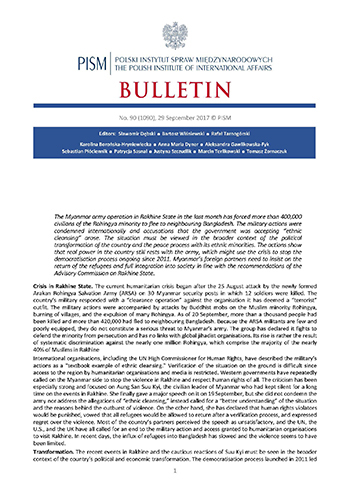The Future of Russia-Bulgaria Relations after the Bulgarian Presidential Election
The Future of Russia-Bulgaria Relations after the Bulgarian Presidential Election
Author(s): Jakub Pieńkowski
Subject(s): Economic policy, International relations/trade, Developing nations, Geopolitics
Published by: PISM Polski Instytut Spraw Międzynarodowych
Keywords: Bulgaria; elections; presidential elections; Russia
Summary/Abstract: On 13 November, Rumen Radev was elected president of Bulgaria. Supported by the opposition Bulgarian Socialist Party (BPS), he received nearly 60% of the votes in the second round. He promises to strengthen cooperation with Russia and remains sceptical of NATO reinforcement in the Black Sea region. Tsetska Tsacheva, the candidate for the ruling party Citizens for European Development of Bulgaria (GERB), received 36% of the votes. Her loss brought with it the resignation of the Boyko Borisov government. GERB announced it would not participate in a new government coalition. BPS has limited ability to form a new coalition, meaning early parliamentary elections may take place at the beginning of 2017 and could further strengthen the pro-Russian parties.
Series: PISM Bulletin
- Page Count: 2
- Publication Year: 2016
- Language: English
- Content File-PDF

